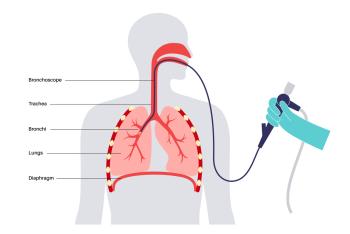This article provides a guide for caregivers on how to keep their children healthy during the school...
Read More

Annual wellness exams are not your “yearly shots” appointment, but a form of preventive care essential to living a healthy life. When you skip your annual visit, you risk missing a chance to catch things before they become unmanageable.
“Whether you are 22 or 92, annual wellness exams give you and your primary care provider an opportunity to address any concerns you both may have and create a plan to live the healthy life you deserve,” said Dr. Kristen Trom, D.O., Inspira Medical Group Primary Care Mullica Hill Commons. Here’s what to know about taking care of your health on a yearly basis.
Think of your body like a car: To maintain its condition, it requires a yearly inspection to prevent potential malfunctions down the road; however, depending on its make, model and year, each vehicle requires a specific maintenance routine.
“The goal of annual wellness exams is to see where we need to improve, or have improved, your health based on all of the information we have available, such as your past health records, family history and current vitals,” said Dr. Trom.
Your annual wellness exam is usually completed by a primary care provider and may include:
After you schedule your annual wellness exam, the next step is to gather everything you need to ensure you are ready to hit the ground running—or to keep with our car metaphor, rolling.
“Annual wellness exams make sure you know how to take care of your body and when needed, make adjustments to your existing care plan,” said Dr. Trom.
To make the most out of your annual wellness exam, make a list of:
The body is constantly changing. That is why the tests, screenings and shots you need change depending on your age. While teen health requires acute attention to hormonal changes related to puberty, advanced age health encompasses blood pressure management, heart health and even bone density screenings.
“The body is an anomaly, and illness does not discriminate. No matter what stage of life you are in, it’s important to keep tabs on your sleeping habits, blood pressure, sugar levels and even reproductive health. The earlier you talk about your concerns, the easier it may be to treat,” said Dr. Trom.
Scheduling and preparing for your annual wellness exam may seem daunting, but taking this step is more than a preventive care plan, it’s helping to solidify a healthy life plan. From adolescence to advanced age, nothing is more important than making sure you and your loved ones have access to the tools and resources you need in every stage of your life.

This article provides a guide for caregivers on how to keep their children healthy during the school...
Read More
June Seltner, 82, known for her vibrant lifestyle and numerous interests, experienced a stroke in...
Read More
Learn the differences between bronchoscopy and endoscopy, including what each procedure entails and...
Read More
The material set forth in this site in no way seeks to diagnose or treat illness or to serve as a substitute for professional medical care. Please speak with your health care provider if you have a health concern or if you are considering adopting any exercise program or dietary guidelines. For permission to reprint any portion of this website or to be removed from a notification list, please contact us at (856) 537-6772